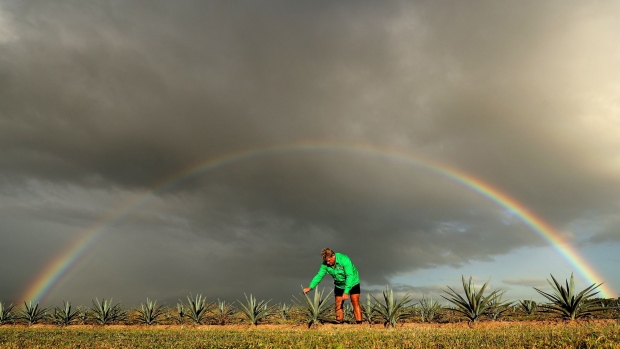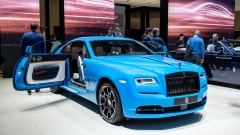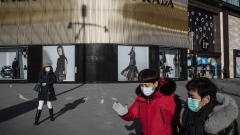May 7, 2021
Australia Takes on Mexico’s Tipple (Just Don’t Call It Tequila)
, Bloomberg News

(Bloomberg) -- If you’re looking for a symbol of tequila’s meteoric rise in recent years, a large-scale agave farm just inland from Australia’s Great Barrier Reef -- nearly 8,000 miles away from Mexico -- might be a good place to start.
The plantation belongs to Top Shelf International Holdings Ltd., a Melbourne-based spirits company that listed on the Australian stock exchange in December and already slings vodka and whiskey to the domestic market. Next up, it plans to go international with agave spirits, one of the world’s fastest-growing hard liquors.
But don’t call the product tequila. Just as champagne can only be made in one part of France, “tequila” is exclusive to specific areas of Mexico. “Mezcal” and “raicilla” are also off limits.
The Top Shelf farm is a long-term bet on the blue-tinged, waxy plant, which grows by moonlight and takes about six years to mature. Spirit-making grains such as wheat, barley and rye have a 12-month cycle.
Chief executive office Drew Fairchild is aiming for A$100 million ($77.7 million) annual turnover from Top Shelf’s still-unnamed agave spirit when it does hit shelves overseas. It could reach select outlets in Los Angeles as soon as the end of the year, he said.
“On the agave side, we’d like to launch that not only in Australia, but also in the US from the get-go,” Fairchild said. “It’ll be a $9 billion market by the time we get our spirit to market in the U.S. alone.”
Top Shelf hopes to create drinks with a uniquely Australian flavor, influenced by the characteristics of the country’s soil. Drinkers can expect notes of honey, lime peel and cut grass, the company says.
China is another potential market down the track. Australia became the top wine exporter to the world’s second-largest economy in 2019, selling A$1.2 billion of product there that year. Prohibitive tariffs effectively shut down the trade last November.
The wine industry “turned the domestic market to an international export market,” Fairchild says. “There’s no reason why we can’t do the same.”
He says Top Shelf is starting to field inquiries about its whiskeys from Chinese distributors who are seeking out new products now that wine is off the table.
China’s Love Affair With Australian Wine Ends in a Messy Breakup
“We’re lucky that we’ve got scale,” he said, “to start to be able to tap into that market. It’ll be interesting to see how it unfolds.”
While Australia does have other agave plantations in Queensland and Western Australia, Top Shelf’s farm is by far the biggest, and its focus on producing spirits rather than biofuel is unusual.
But while Australian agave is a rarity, novelty value may not be enough to win over U.S. drinkers, the biggest consumers of tequila. With the micro-distiller market fairly saturated -- Kendall Jenner launched her own tequila in February and even George Clooney owned a brand -- taking market share from the giants like Bacardi Ltd.’s Patron and Diageo Plc’s Don Julio will be a challenge.
Aged Then Filtered, a New Kind of Tequila Is Going for Premium
Mexican tequila will be hard to displace in consumers’ eyes, according to Alex Gilmour, manager of world-ranking tequila bar Cantina OK! in Sydney, who regularly visits the country to buy spirits from local producers.
“I think it’ll be hard” to compete, he said. “These producers have been doing it in their method for generations.”
Still, the agave boom isn’t showing any signs of slowing just yet. That’s especially true at the higher end of the market, according to researcher IWSR. Agave spirit sales are set to grow 4.2% annually in the five years through 2024 across 19 key markets, with premium sales expected to rise 8.8%, hitting nearly $9 billion in value.
Potential in the Asia Pacific region looks promising too, with annual growth across China, India, Japan, Thailand and Australia collectively projected at 8%. Hong Kong’s Coa -- anointed Asia’s best bar on Thursday -- features a 41-page menu of agave drinks.
©2021 Bloomberg L.P.


